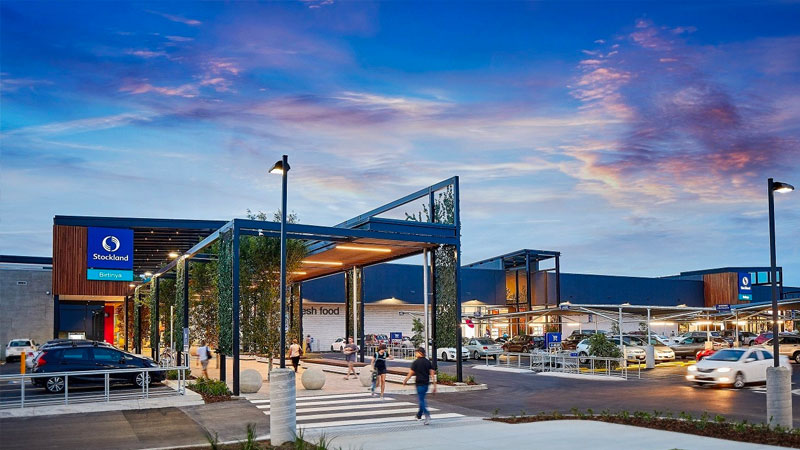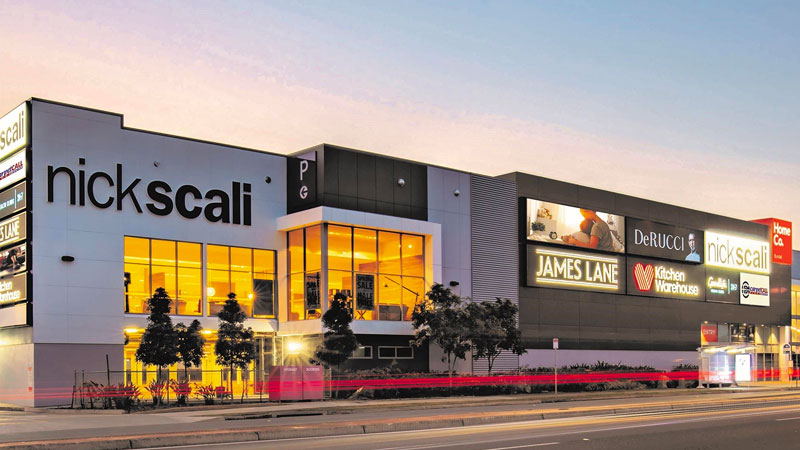Coronavirus Continues to Ravage Retail Sector
The country's largest listed developer Stockland has withdrawn its full-year guidance as uncertainty surrounding the impact of the coronavirus pandemic continues to ravage property stocks.
The ASX-listed company, with operations spanning residential, retail, office and logistics properties, was banking on a second-half skew after its funds from operations, an industry measure of profit, fell 5.6 per cent in the six months to December.
The company has now withdrawn forward-looking performance as unprecedented tough retail conditions pose new challenges and signal the scale of the slump that retailers now expect.
Stockland, which holds a large network of shopping centres, has been feeling the heat within the sector for a number of months, with a higher-than-normal number of tenants going into administration, including the collapse of retail chain Harris Scarfe.
Stockland chief executive Mark Steinert said the company had navigated many challenges and difficulties over its 68 year history and was in good stead, with a total available liquidity of $850 million.

“The safety and wellbeing of our people, customers, communities and tenants is always our first priority and we continue to closely monitor the constantly evolving impacts of Covid-19, acknowledging it may continue for some time,” Steinert said.
“I am confident that our board and executive committee have the depth and breadth of experience to respond to this unprecedented event.”
Many listed companies have followed suit withdrawing financial guidance amid the spread of COVID-19 and the uncertain economic impact that will result.
Property developer Mirvac, online residential listing site REA Group, and property funds GPT and APN Property have also announced the withdrawal of their full-year financial outlook.
Shopping centre landlords have been under duress as they attempt to bring nervous consumers back into their malls amid coronavirus fears, shifting consumer habits away from traditional shopping patterns.
Charter Hall’s Retail REIT, with over $150 million in available liquidity, has also succumbed to industry uncertainty, withdrawing guidance on Monday.
The supermarket-anchored mall landlord claimed last month that the trust was “not exposed at all” to the impacts of the coronavirus with January sales and foot traffic “running at the same trajectory of previous months”.
The two-speed nature of the retail property landscape has also hit convenience retail centre landlord Home Consortium, also abandoning their earnings and distributions forecasts.
The decision by HomeCo followed similar precautionary actions taken by shopping mall landlords Vicinity Centres and Scentre Group, which runs Westfield centres, last week.
HomeCo, which owns 30 assets nationally, floated solidly in October following the capture of a portfolio of retail warehouses from failed hardware chain Masters, booking a $12.4 million loss, with pre-float costs weighing on its result.
The group has a heavy exposure to bricks and mortar retail, with a fifth of HomeCo's rental income from tenants including Goodlife Health Clubs, Chemist Warehouse and Guardian Childcare.

Home Consortium chief executive David Di Pilla said that despite the challenging economic climate, the business was well prepared to keep operating.
“We have been proactive in ensuring the safety and wellbeing of our employees, retailers, visitors and the broader community during this challenging time.”
“While fully understanding our corporate responsibility to all our stakeholders, we continue to believe in our hyper convenience centre model and will endeavour to deliver long-term value to our shareholders.”
HomeCo tempered shareholders nerves, underscoring the business had no debt maturities until 2023 and $146 million in liquidity through cash and undrawn bank facilities.
The group reiterated that three developments projects at Cairns, Richlands and Coffs Harbour were continuing with construction and on track to open in 2021.












